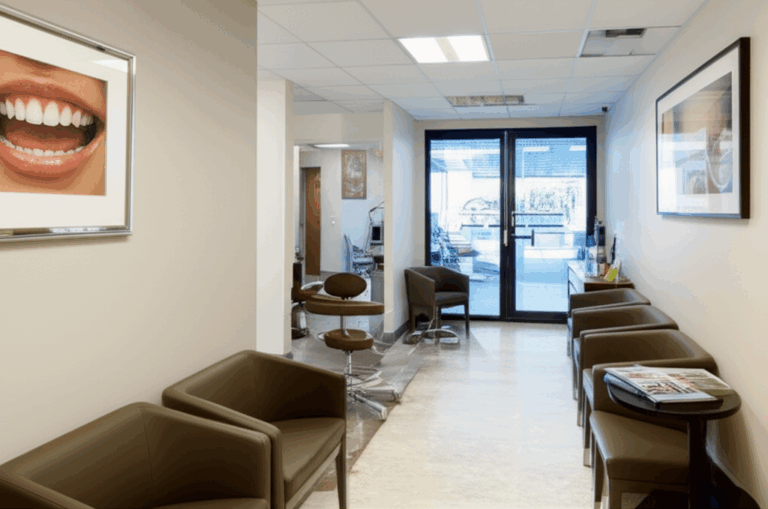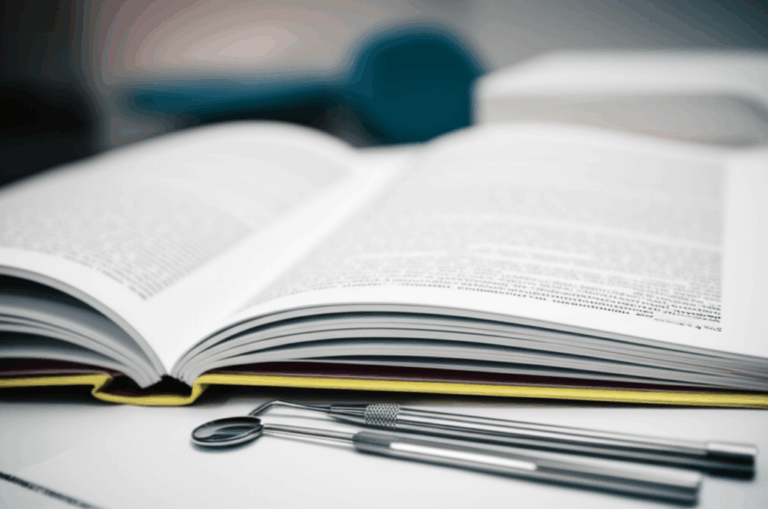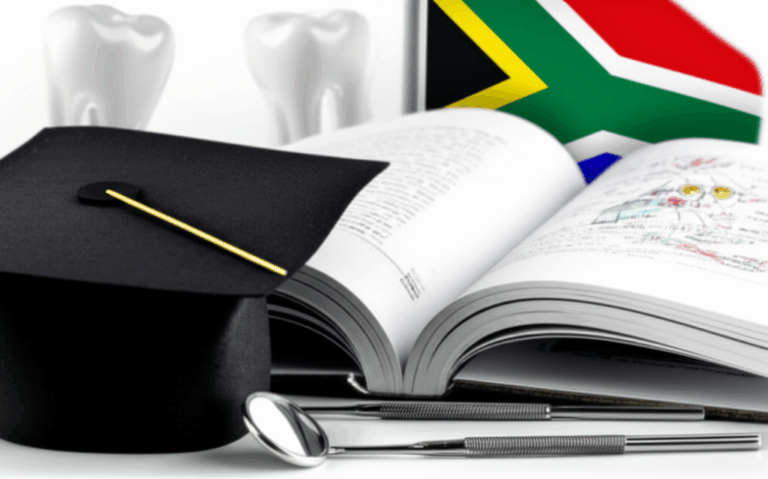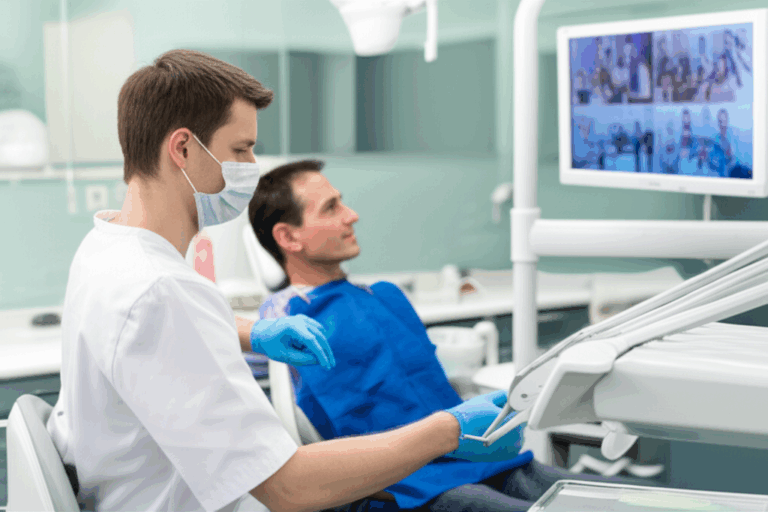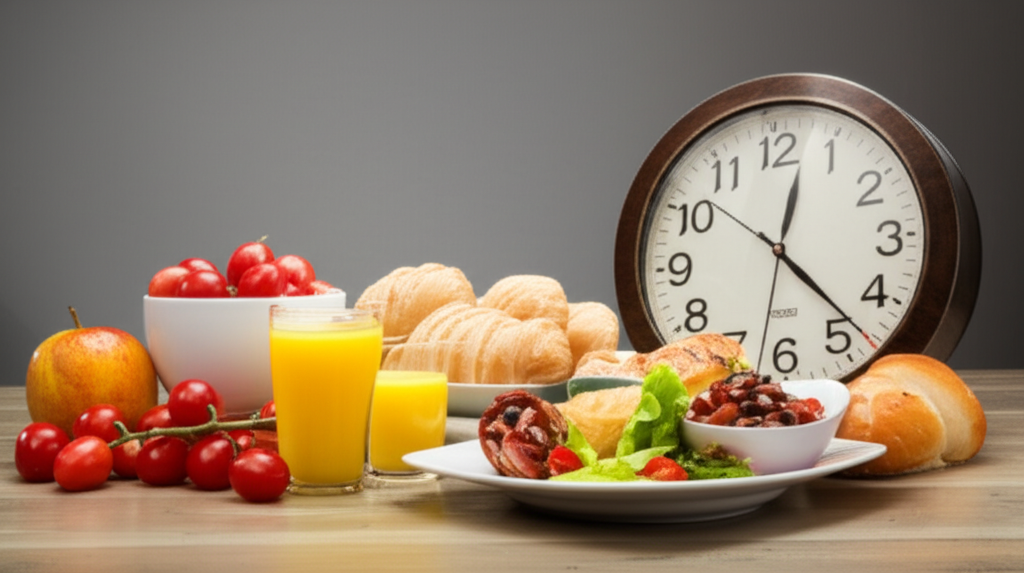
How Long Before a Dentist Appointment Can I Eat? Your Complete Guide
That nervous before-the-dentist snack—should you eat it, or skip it? Maybe you’ve asked, “Is it okay to eat right before seeing the dentist? Will breakfast be a problem? What if they numb my mouth—will I bite my cheek?” Take a deep breath. You’re not alone. Knowing what to eat or drink before a dentist appointment can be confusing, especially since the advice is different for each type of visit. Whether you’re going in for a simple cleaning, a filling, or something like wisdom tooth surgery, what you eat (and when) really matters. Let’s break down when it’s okay to eat before your appointment, what foods are best (and which to avoid), and why these guidelines keep you safe—in simple words.
In This Article
- The General Rule: Eating Before Routine Dental Check-Ups and Cleanings
- Specific Procedures: When Food & Drink Rules Change
- Local Numbing (Fillings, Crowns, Root Canals, Simple Pulling)
- Sedation Dentistry (Laughing Gas, Pills, IV Sedation)
- Oral Surgery & Harder Pulls (Like Wisdom Teeth Out)
- What (and What Not) to Eat Before Your Appointment
- Don’t Forget to Clean Your Teeth!
- Special Situations
- If Unsure: Always Ask Your Dentist or Their Team!
- Frequently Asked Questions (FAQs)
- Your Healthy Tip to Remember
The General Rule: Eating Before Routine Dental Check-Ups and Cleanings
Let’s keep it simple. For most normal dentist visits—like check-ups, cleanings, or even x-rays—there’s usually no strict rule stopping you from eating before. Eating breakfast or lunch can help keep you feeling good, make you less anxious, and stop your stomach from growling. But here’s the thing—what you eat, and cleaning up after, makes a big difference.
Why does this matter?
First, comfort—a big, greasy breakfast may leave you feeling heavy during your cleaning. Second, your dentist needs to see clearly in your mouth, so don’t show up with bagel seeds stuck between your teeth. Third, nobody enjoys bad breath.
What’s best?
- Eat a small meal 1–2 hours before your visit.
- Drink water to stay hydrated; try to skip strong coffee.
- Brush and floss after eating. This helps your dentist see better and keeps your breath fresh.
Tip: Water is great—it helps your mouth stay moist, which feels better and cuts strong smells. Not drinking enough water leaves your mouth dry, which isn’t comfortable. Try sipping water before you go and avoid tons of coffee or energy drinks.
Specific Procedures: When Food & Drink Rules Change
Now things get a little different. Not all dental treatments are the same—some just need a little numbing, while some need you to be sleepy or fully asleep with medicine. Here’s when what you eat matters more:
- Fillings
- Crowns
- Root canals
- Wisdom teeth out
- Cleanings
- Sedation dentistry
Every kind of appointment has its own rules for eating and drinking. Following them can keep you safe and make things smoother.
Local Numbing (Fillings, Crowns, Root Canals, Simple Pulling)
If you’re only getting a shot to numb part of your mouth (local anesthesia), you can usually eat as normal before.
What does that look like?
Eating: Have a light, healthy meal (like oatmeal, yogurt, eggs, or a simple sandwich). This helps keep your blood sugar okay and stops you from feeling faint.
Drinking: Water is best. Don’t drink alcohol—it dries you out and can mix badly with some medicines. Skip super-sugary drinks and energy drinks.
Why? Local numbing only works in the area the dentist is fixing. You don’t get sleepy, and you still can swallow safely. The chance of choking on your food is almost zero.
After your appointment: Be careful! Wait until the feeling in your mouth comes back (usually 1–3 hours) before you eat again, or you might bite your lip, cheek, or tongue—and that hurts.
Sedation Dentistry (Laughing Gas, Pills, IV Sedation)
Some dental work—especially for folks who get nervous or need more complex treatment—uses medicine to make you relaxed or sleepy. This ranges from light stuff (laughing gas) to stronger stuff (pills or IV sedation). The more “sleepy” you’ll be, the stricter the eating rules.
Nitrous Oxide (Laughing Gas)
Eating: You can have a light, plain meal 1–2 hours before—like dry toast, a banana, or a small bowl of cereal. Skip spicy, greasy, or heavy food, since it can upset your stomach.
Drinking: Water is good. Staying hydrated can help your appointment go more smoothly.
Why? Laughing gas can sometimes make people feel a bit queasy—especially with an empty stomach, or if you eat heavy food before. Eat just enough for balance.
Oral Sedation (Pills like Halcion)
Eating: You’ll usually be told no food for 6–8 hours before. Some dentists may say you can have a small snack if it’s well before your visit, but it’s safer to just not eat.
Drinking: You can usually have a small sip of water (sometimes clear juice) up to two hours before. Don’t drink milk or creamy stuff. For some visits, it’s “nothing to eat or drink” for six hours—ask if you’re not sure.
Why? Pills to calm you make you groggy and slower to react. If you throw up with a full stomach while sleepy, food or stomach juice can go in your lungs—which is dangerous.
IV Sedation or Being Fully Asleep (Deep Sedation, Surgery)
Eating: No food for at least 6–8 hours before your appointment, or longer if they tell you.
Drinking: Clear drinks like water, apple juice, or weak tea—no milk or sodas—can be had up to two hours ahead, unless told otherwise.
Why? When you’re very sleepy from medicine, your body can’t protect itself well if you throw up. If your stomach isn’t empty, the risk of choking is much higher.
Oral Surgery & Harder Tooth Pulls (Like Wisdom Teeth Removal)
Oral surgery (like getting wisdom teeth out) almost always means deep sedation or being fully asleep. These rules are even more important here.
Eating & Drinking: No food for 6–8 (or more) hours before surgery time (always follow your dentist’s instructions). Stop clear drinks about two hours before, unless told something different.
Why? You’ll be very sleepy and can’t spit or swallow well if you get sick. The “no food or drink” rule is for your safety. If you eat or drink too close to surgery, they may postpone or cancel your visit to keep you safe.
What (and What Not) to Eat Before Your Appointment
You know if you can eat. But what should you eat?
Best Foods (If Allowed to Eat)
Keep it simple. You want food that’s easy for your stomach, won’t stick in your teeth, and keeps you full.
Good choices:
- Toast or a plain sandwich
- Banana, applesauce, or soft fruits
- Yogurt or a small bowl of oatmeal
- Scrambled eggs
- Rice or plain noodles
These give you the energy you need, won’t make a mess in your mouth, and won’t leave a strong smell.
Drink water. Mild herbal tea is okay; avoid tart or sugary drinks.
Foods/Drinks to Skip (Before Appointment)
Don’t eat:
- Heavy, greasy, or spicy foods (bacon, sausage, burgers, chili, etc.)
- Sweet drinks and candy (soda, energy drinks, sweets)
- Alcohol (makes you dry, can mix badly with medicines and sedation)
- Strong coffee or caffeine (can make you anxious, dry your mouth)
- Chewing gum (gets stuck, tires your jaw)
- Crunchy or sticky foods that stick in braces or dental work
Garlic or onion? Best to avoid before someone is working in your mouth!
Don’t Forget to Clean Your Teeth!
You’ve picked your meal, so now—clean up! Brush and floss well before you go. This gets rid of old food and germs, gives you fresher breath, and lets your dentist see everything they need to. Floss, too—especially if stuff always gets stuck between your teeth.
Don’t forget your tongue! Lots of germs hang out there.
Special Situations
Sometimes the usual rules don’t fit everyone. Here are a few times to be extra careful and maybe call your dentist first:
For People With Diabetes
Managing blood sugar can be hard at dentist visits, especially if you’re told to not eat. Talk to your dentist and your doctor ahead of time; they’ll help you plan your insulin, medicine, and safe eating times. Don’t skip your diabetes meds without a doctor saying it’s okay.
Other Medical Issues
Do you have a heart problem, stomach issues, or lots of medicines? Always let your dentist and their team know and bring a list of what you take. They’ll help with any changes you need to your eating or medicine schedule.
Medicines
Most of the time, keep taking the pills you’re told to every day. Take them with the smallest sip of water you can. If you take blood thinners, medicine for diabetes, or heart meds, ask your dentist and your doctor what to do.
If Unsure: Always Ask Your Dentist or Their Team!
Online advice (like this!) is a good start, but your own dentist knows your health and your appointment plans best. If you’re not sure—call the dentist’s office. People ask things like, “Can I eat before my cleaning?” every day. There are no silly questions when it comes to your health!
When you call, tell them:
- What you’re having done
- Any health problems or medicines
- The time of your appointment
Getting the right answer for you can ease your worries and keep everything safe.
Frequently Asked Questions (FAQs)
Let’s answer some common worries about eating and drinking before the dentist:
Q: Can I drink water before a dentist appointment?
A: Yes. Water is always okay (unless you have a strict fasting rule, like for sedation). Being hydrated helps your mouth stay comfy and makes your breath nicer.
Q: Is coffee okay before the dentist?
A: For check-ups or cleaning, one cup is usually fine, but don’t overdo it. Too much caffeine can make you jumpy and dry your mouth. Don’t drink coffee right before sedation, and always brush your teeth after having some.
Q: Should I brush my teeth before going to the dentist?
A: Yes! A clean mouth helps everyone and can make the visit easier. Floss, too.
Q: What if I feel sick to my stomach before my visit?
A: Call your dentist. If you feel queasy before a visit with sedation, let them know—they might need to change something.
Q: How long do I need to not eat before wisdom teeth removal?
A: Usually, no food for at least 6–8 hours before. No clear drinks for two hours before (unless your oral surgeon tells you something else).
Your Healthy Tip to Remember
Let’s keep it easy—here are the three main eating rules before the dentist:
- For most cleanings or check-ups: a light meal and water is fine. Brush and floss when you’re done.
- If you’re having sedation—or will be very sleepy during your treatment—strict fasting is key. No food for 6–8 hours, clear drinks until two hours before (unless your dentist says otherwise).
- Always check with your dentist or their team if you’re unsure, have a health issue, or are on complicated medicines.
Planning what you eat, and keeping your mouth clean before your dental appointment, makes the visit safer and easier—for you and the dental team. After, you’ll leave with a cleaner, happier smile.
Easy Dental Health Tips
Set yourself up for healthy teeth with these quick habits:
- Eat more whole grains, fruits, and lean meats for strong teeth and a healthy body.
- Drink water through the day—it keeps your breath fresh and helps the dentist.
- Brush two times a day, floss once, use a tongue cleaner, and rinse with water after snacks and meals.
- Talk to your dentist early if you have dental worries—small issues are easier to fix than big ones.
- Want more info about dental ceramics labs, new tech in digital dental labs, or how a full patient dental resource works? Ask your dentist or check trusted dental websites.
You’re the most important part of your dental care team. Eat and drink smart, follow your dentist’s tips, and show up confident—your mouth will thank you.
Tips above follow ideas from big dental groups like the American Dental Association (ADA) and the American Society of Anesthesiologists (ASA). If you have special health needs or get custom advice, trust your dentist or oral surgeon first!
If you’re ever curious about dental technology, fixing teeth in labs around the world, or want to know more about dental crowns and bridges—that’s something for another conversation. And if you feel confused or stuck, remember: a guide like this is always just a click away.
Happy smiling—and happy (timed) eating!

